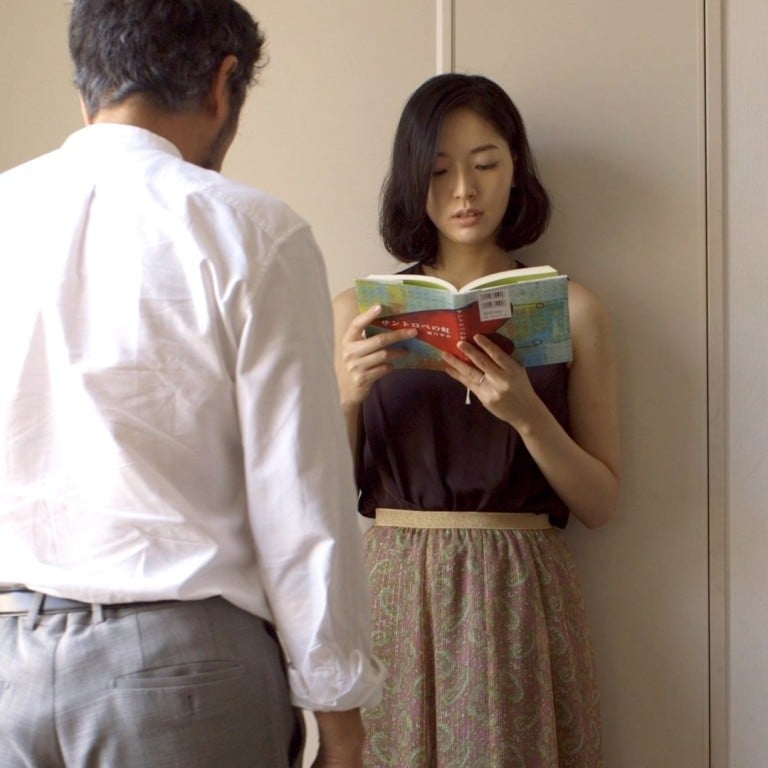
Ranked: the 12 best Asian films of 2021, from Drive My Car to Drifting and The Falls
- Asia has produced some of the most acclaimed and widely talked about films of the year. Here are a dozen of the best, including Jun Li’s Drifting
- Mamoru Hosoda’s Belle tells a story of grief, trauma and internet celebrity, while Drive My Car by Ryusuke Hamaguchi looks set to win big at the Oscars in 2022
While the coronavirus pandemic has done its damnedest to hamper film production, festival screenings and release schedules, the industry has remained defiant.
Asia in particular has produced some of the most acclaimed and widely talked about films of the year, from both established and fast-emerging directors.
We have compiled a list of the dozen best Asian films of 2021, as eclectic in origin as they are impressive in artistic merit.
12. The Falls (directed by Chung Mong-hong, Taiwan)
11. In Front of Your Face (dir. Hong Sang-soo, South Korea)
Endlessly prolific filmmaker Hong Sang-soo presented a brace of new features this year, and this drama about a middle-aged actress (Lee Hye-young) returning to Korea after many years working in America proved by far the superior of the two.
As with much of Hong’s work, the film is meticulous in its execution – appearing loose and meandering before pulling its themes into sharp focus in a surprising final movement.
10. Vengeance is Mine, All Others Pay Cash (dir. Edwin, Indonesia)
Bestselling author Eka Kurniawan adapts his celebrated 2014 novel, together with acclaimed writer-director Edwin, into a thrilling, action-packed black comedy.
9. Belle (dir. Mamoru Hosoda, Japan)
Japan’s foremost anime auteur spins Gabrielle-Suzanne Barbot de Villeneuve’s classic fairy tale Beauty and the Beast into a heartbreaking 21st century story of grief, trauma and internet celebrity, as a troubled teenager finds her voice as an online pop sensation.
8. The Book of Fish (dir. Lee Joon-ik, South Korea)
The King and the Clown director Lee Joon-ik delivers yet another drama set in Korea’s Joseon era with this beautifully crafted and sensitively observed tale of an unlikely friendship between a scholar and a fisherman.
Evocatively shot in soft black and white, the film sees Sol Kyung-yu play real 18th century academic Jeong Yak-jeon, who is exiled to remote Heuksando island, where he meets the simple yet inquisitive Chang-dae (Byun Yo-han).
7. Drifting (dir. Jun Li Jun-shuo, Hong Kong)
6. Limbo (dir. Soi Cheang Pou-soi, Hong Kong)
5. Memoria (dir. Apichatpong Weerasethakul, Thailand/Colombia)
For his first English-language feature, award-winning Thai filmmaker Apichatpong Weerasethakul recruits Tilda Swinton for a typically bizarre and dreamlike international odyssey.
4. Drive My Car (dir. Ryusuke Hamaguchi, Japan)
A critical darling that has topped critics’ lists around the world, Hamaguchi’s second film of 2021 looks set to score multiple Academy Award nominations in the new year.
3. On the Job: The Missing 8 (dir. Erik Matti, Philippines)
Nine years after his blistering thriller On the Job, Erik Matti returns to complete the saga with this astonishing 208-minute crime epic. In the story, a small-town mayoral race becomes a hotbed of corruption, scandal and murder after a carload of outspoken journalists go missing.
2. A Hero (dir. Asghar Farhadi, Iran)
A good deed spirals out of control in Farhadi’s latest masterwork, which could see the Iranian auteur score a third Oscar win for his home country.
1. Wheel of Fortune and Fantasy (dir. Ryusuke Hamaguchi, Japan)
Overshadowed by awards juggernaut Drive My Car, Hamaguchi’s other 2021 film is a far more complex and emotionally dexterous triptych examining the complexities of modern relationships.

